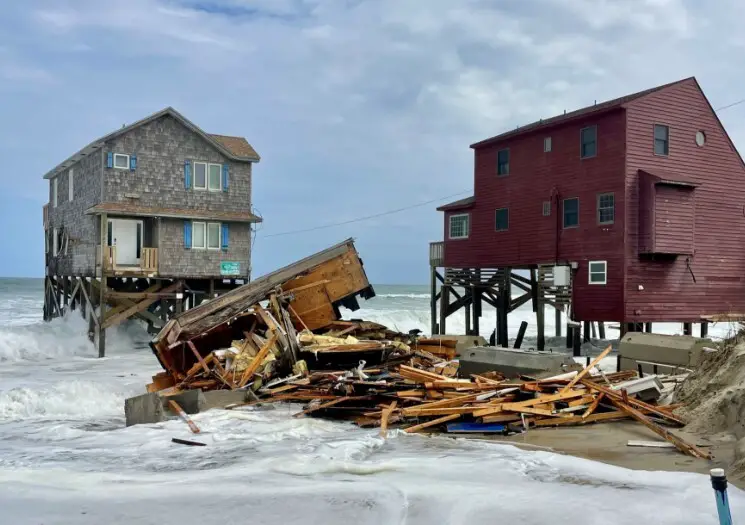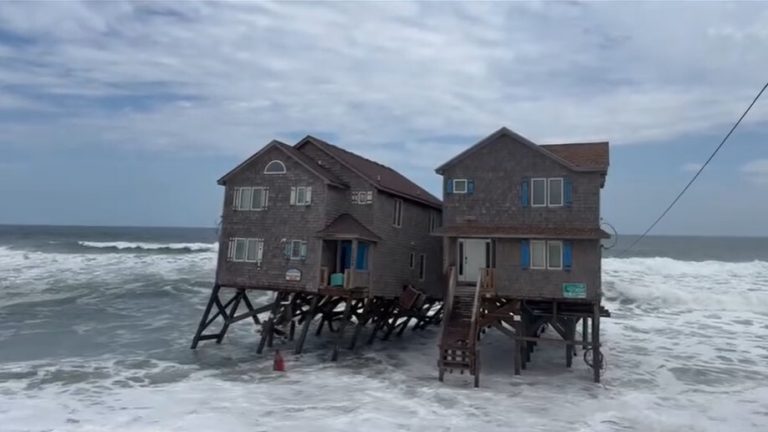In a concerning development for the Outer Banks community in North Carolina, a third house has collapsed into the ocean within a single week. This marks the fifth house lost this year in the coastal town of Rodanthe, which has been grappling with severe coastal erosion. These collapses highlight the ongoing challenges faced by coastal properties as the shoreline continues to erode, causing the foundations of many beachfront homes to weaken and eventually give way.

The recent collapse adds to growing worries about the stability of homes in this region, where shifting sands and rising sea levels have made living near the ocean increasingly precarious. Authorities and residents have been monitoring the situation closely, as each collapse not only results in property loss but also poses potential environmental risks from debris being washed into the ocean. Efforts to mitigate the damage and find long-term solutions are becoming more urgent as these incidents increase in frequency.
Local officials have been urging homeowners to take preventative measures, but the options are limited and often costly. Some have opted to move their homes further inland, while others are left with few alternatives as the encroaching sea threatens their properties. The situation has sparked discussions about the future of coastal living in Rodanthe and similar communities along the Atlantic coast, as the effects of climate change and natural erosion continue to reshape these landscapes.
This latest series of collapses has prompted a call for more robust and coordinated efforts to address the underlying issues of coastal erosion and climate resilience. As residents grapple with the immediate aftermath, the broader community is left to ponder what can be done to protect these cherished coastal areas from further devastation.




